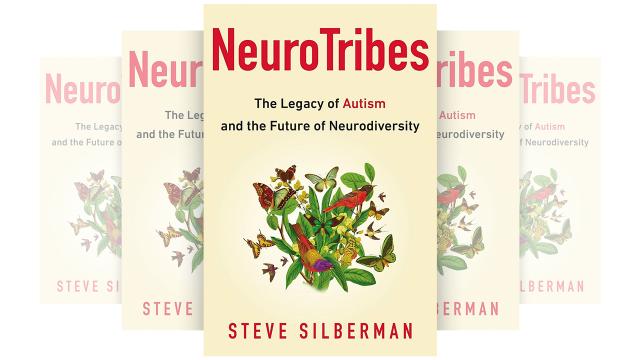An epidemic. A vaccine-induced scourge. A curse. Or the reason Steve Jobs was so focused. The thing Bill Gates had that helped him get rich.
Autism is a misunderstood condition. Steve Silberman makes it understood in his new book NeuroTribes: The Legacy of Autism and the Future of Neurodiversity.
I’m a fan of Silberman’s work at Wired, so I knew NeuroTribes would probably be well-written and informative. I didn’t necessarily expect it to be a page-turner. I was happily surprised.
Silberman examines how we think about autism from every available angle. Some chapters read like case studies of contemporary autism coping strategies. Others are rollicking history lessons. Silberman details how autism was “discovered” twice in the 1940s, first by paediatrician Hans Asperger in war-torn Austria, then in the US by Austrian-American child psychiatrist Leo Kanner. He traces how Asperger and Kanner’s views on autism influenced treatments, including how Kanner’s (incredibly wrongheaded) ideas about “toxic parenting” and “refrigerator mothers” causing the condition derailed treatments. Silberman looks at the influence of the internet as a tool for creating communities for autistic people, and how the concept of an autistic spectrum emerged.
The chapters on Asperger and Kanner’s separate research on autism are especially fascinating; both researchers led turbulent lives, with Asperger butting up against Nazis and Kanner turning into a sort of proto-Dr. Phil as he scared the shit out of parents. Those chapters are fast-paced history lessons on eugenics and egotism.
Silberman’s portrait of Asperger reveals an unsung hero. Asperger has been criticised for focusing too much on high-functioning “little professors” while ignoring lower-functioning autistic people, but he had a good reason: He played up the savants because he was in a climate where the government was murdering people it deemed burdens of society. Far from ignoring lower-functioning autistic behaviour, Asperger was the first researcher to acknowledge that the condition occurred as a continuum — that aspect of his studies just didn’t receive as much attention.
The book is a little shaggy, and its chapters zigzag from one topic to the next to create an overall impression of how humans have understood autism. As much as Silberman’s expansive impulses make NeuroTribes a tome, the wide angle is a strength. By showing us examples of many different lived experiences of autism and many iterations of understanding what it means to be autistic, he’s laying down a huge bedrock for the book’s argument: that we need to prioritise helping and understanding autistic people instead of trying to shove them into normalcy.
That can be hard to grasp when you look at people with autism who are struggling to function in society. My mum is an educational assistant for teenaged twins with autism. They are mostly non-verbal, and can be violent. It’s hard to spend time with them and not wish that they could communicate better, and it’s hard not to suspect that they have lower cognitive functioning than “normal” people. This book isn’t asking us to pretend like autism isn’t a handicap. It’s trying to emphasise the necessity of empathy.
Silberman’s humane take on autism reminds me of Andrew Solomon’s book on how parents understand children with difference, Far From the Tree, which has a chapter on autism. Like Soloman, Silberman stresses the importance of empathy and finding ways to help autistic people better function in society, rather than trying to force them to be “normal.”
The concept of neurodiversity isn’t about ignoring problems associated with autism — epilepsy, difficulty communicating, self harm. It’s not about pretending life with autism or having an autistic child is easy. It’s about accepting that many people have atypical minds, and looking for ways society can be more accommodating to difference instead of forcing people with atypical minds to behave like “normal” people. It’s about recognising how people who think differently have enriched the world because of their unusual outlooks, not in spite of them.
NeuroTribes skilfully makes it clear that neurodiversity is something worth thinking about.
